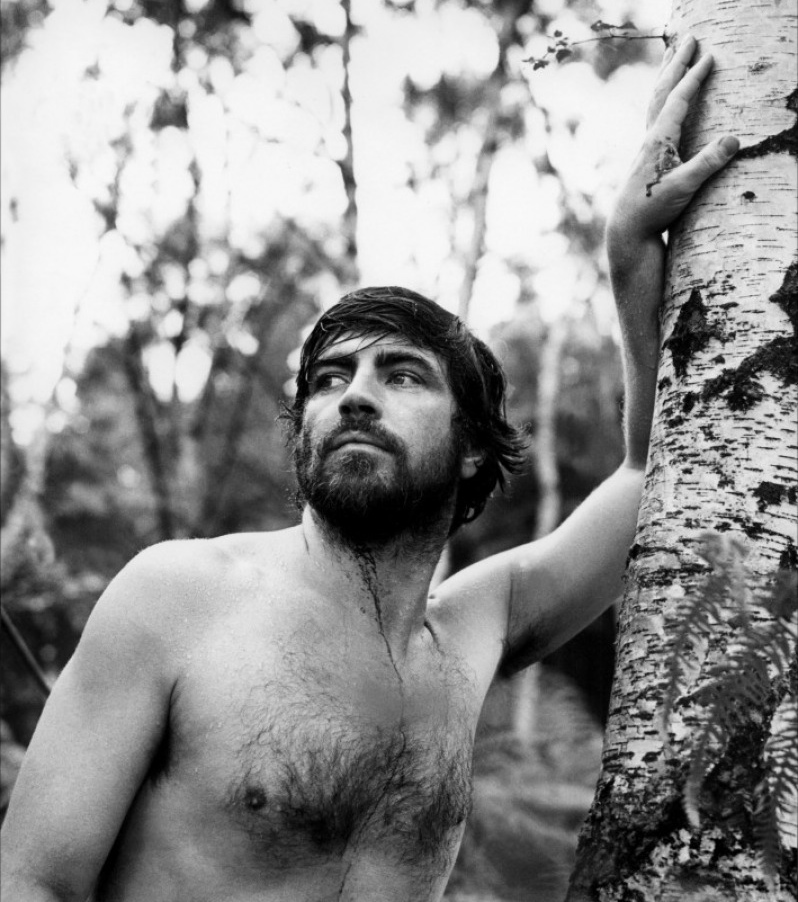Alan Bates nude scenes have sparked interest and admiration for decades, showcasing not only his remarkable talent but also his daring approach to acting. As a celebrated British actor, Bates' career spanned over five decades, leaving an indelible mark on both stage and screen. His ability to portray complex characters with depth and authenticity has made him a beloved figure in the entertainment industry.
This article delves into the life and career of Alan Bates, highlighting his most notable performances, including those that featured his willingness to embrace nudity as an artistic choice. We'll explore the significance of these moments in his career and how they contributed to his legacy as a versatile actor.
Join us as we take a comprehensive look at Alan Bates, examining his biography, key performances, and the impact of his work on the film and theater industry. Whether you are a long-time fan or new to his films, this article provides valuable insights into the life of a true acting legend.
Table of Contents
- Biography of Alan Bates
- Early Career
- Notable Roles
- Alan Bates Nude Scenes
- Impact on Cinema
- Awards and Nominations
- Personal Life
- Legacy and Influence
Biography of Alan Bates
Alan Bates was born on February 17, 1934, in Allestree, Derbyshire, England. He was the son of a coal merchant and a teacher, and he studied at the Royal Academy of Dramatic Art (RADA). His stage debut came in the early 1950s, and he quickly established himself as a prominent figure in British theater.
| Full Name | Alan Arthur Bates |
|---|---|
| Date of Birth | February 17, 1934 |
| Place of Birth | Allestree, Derbyshire, England |
| Date of Death | October 27, 2003 |
| Occupation | Actor |
| Years Active | 1955–2003 |
Early Career
Alan Bates began his career in theater, performing in various productions before transitioning to film. His early work included roles in plays such as "The Entertainer" and "Look Back in Anger," where he showcased his exceptional acting skills. Bates' film debut came in 1960 with the movie "The Entertainer," which established him as a rising star in the industry.
Notable Roles
Throughout his career, Alan Bates took on a variety of roles that demonstrated his versatility as an actor. Some of his most notable performances include:
- Women in Love (1969) - Bates' role as Gerald Crich earned him critical acclaim and showcased his willingness to explore complex themes of sexuality and relationships.
- King of Hearts (1966) - In this film, he portrayed a soldier who falls in love with a woman in a mental asylum, highlighting his ability to convey vulnerability and depth.
- Gosford Park (2001) - Bates delivered a memorable performance in this ensemble cast film, which further solidified his status as a respected actor.
Alan Bates Nude Scenes
Alan Bates' willingness to perform nude scenes was a significant aspect of his career. In "Women in Love," his iconic wrestling scene with Oliver Reed is often cited as one of the most daring moments in film history. This scene not only challenged societal norms but also contributed to the film's exploration of human relationships and sexuality.
Another notable instance of Bates' nudity on screen occurred in "The Last Tycoon" (1976), where he again showcased his commitment to authenticity in his performances. These moments, while controversial, were integral to his artistic expression and helped to redefine the boundaries of performance in cinema.
Impact on Cinema
Alan Bates' contributions to cinema extend beyond his performances. He was known for pushing the envelope in terms of what was acceptable in film, particularly related to nudity and sexuality. His roles often reflected the changing attitudes of society during the 1960s and 1970s, and he played a crucial role in the evolution of on-screen portrayals of male vulnerability and emotional depth.
Awards and Nominations
Bates received numerous accolades throughout his career, including:
- Academy Award nomination for Best Supporting Actor for "The Fixer" (1968)
- BAFTA Award for Best Actor in a Leading Role for "The Running Man" (1963)
- Emmy Award for Outstanding Supporting Actor in a Miniseries or a Movie for "The Last of the Blonde Bombshells" (2000)
Personal Life
Alan Bates was known for being a private individual, but he had several high-profile relationships throughout his life. He was married to actress Victoria Ward from 1970 until their divorce in 1998. Bates also had a long-term relationship with actress Judy Geeson, and the couple remained close until his passing.
Legacy and Influence
Alan Bates passed away on October 27, 2003, but his legacy continues to inspire actors and filmmakers alike. His fearless approach to acting and his willingness to explore complex themes have made him a respected figure in the industry. Many contemporary actors cite Bates as an influence, and his performances remain a testament to the power of authentic storytelling.
Conclusion
Alan Bates' contributions to film and theater have left an enduring legacy that continues to resonate with audiences today. His willingness to embrace nudity as a form of artistic expression challenged societal norms and paved the way for future generations of actors. As we reflect on his life and career, we invite readers to share their thoughts and experiences with Alan Bates' work in the comments section below.
Call to Action
If you enjoyed this article, consider sharing it with fellow film enthusiasts or exploring more of our content on legendary actors and their contributions to cinema. Your feedback is invaluable to us!
Closing Remarks
Thank you for taking the time to read about Alan Bates and his remarkable career. We hope to see you back here for more engaging articles on the world of film and theater!




